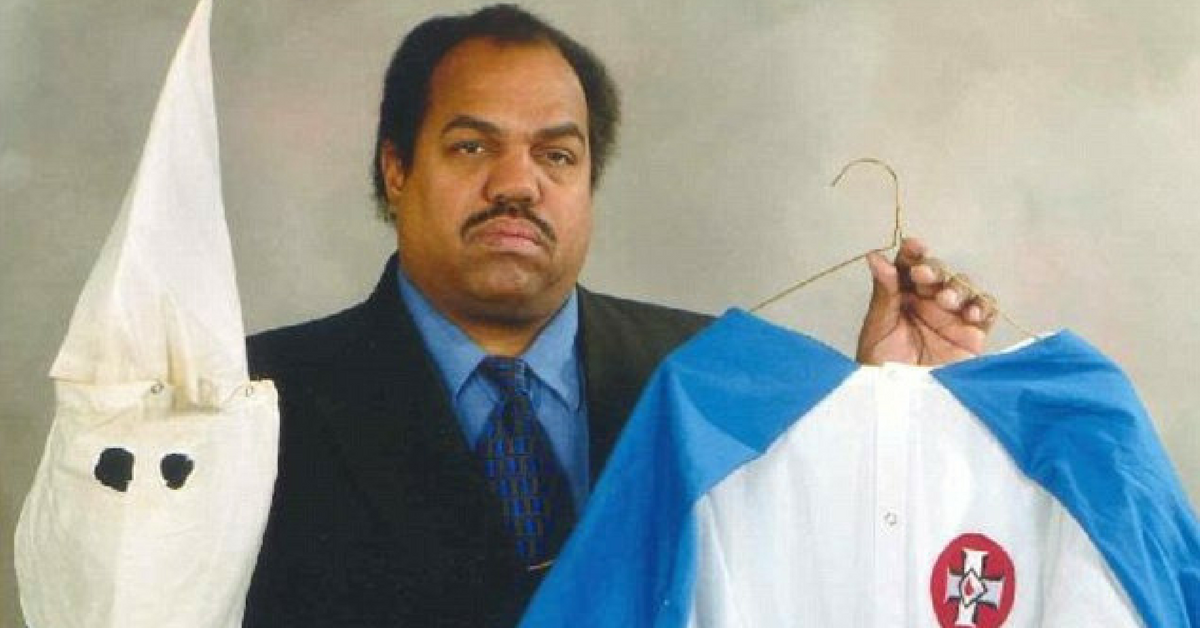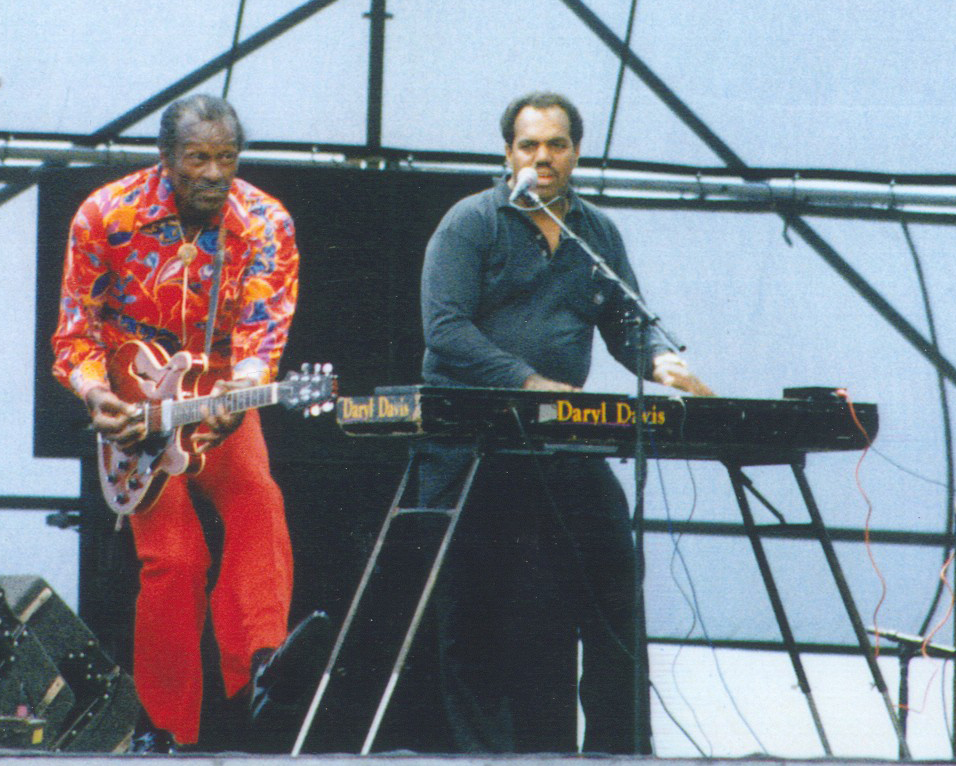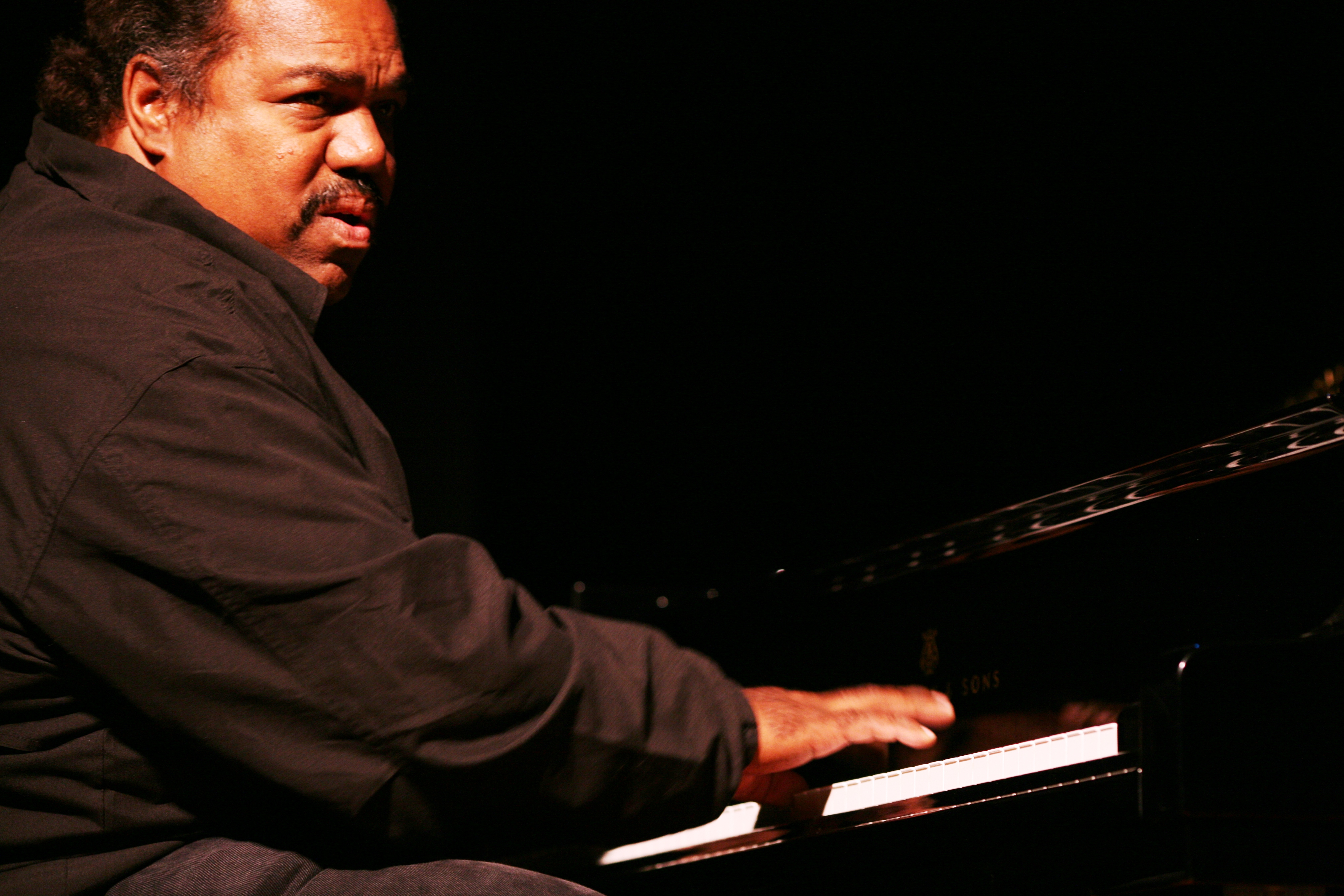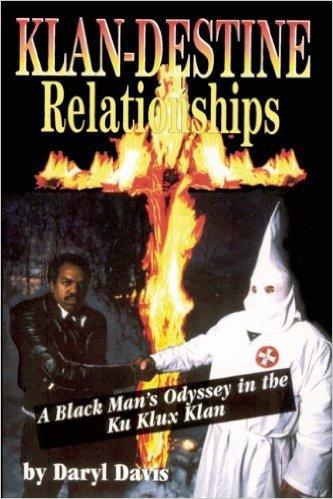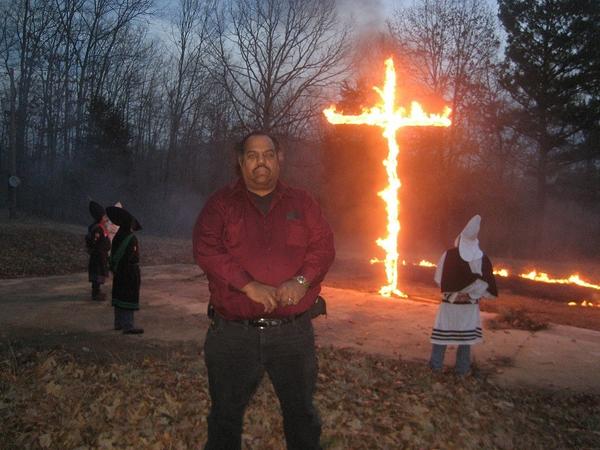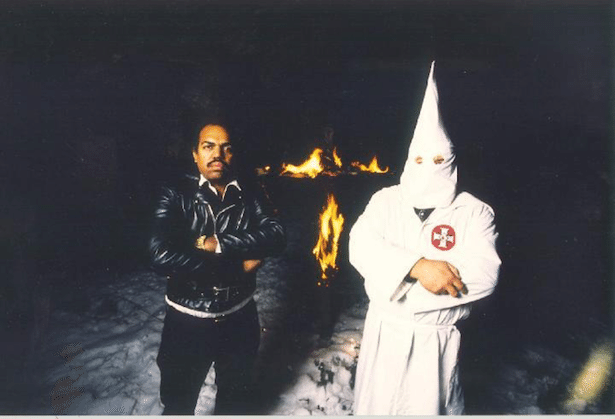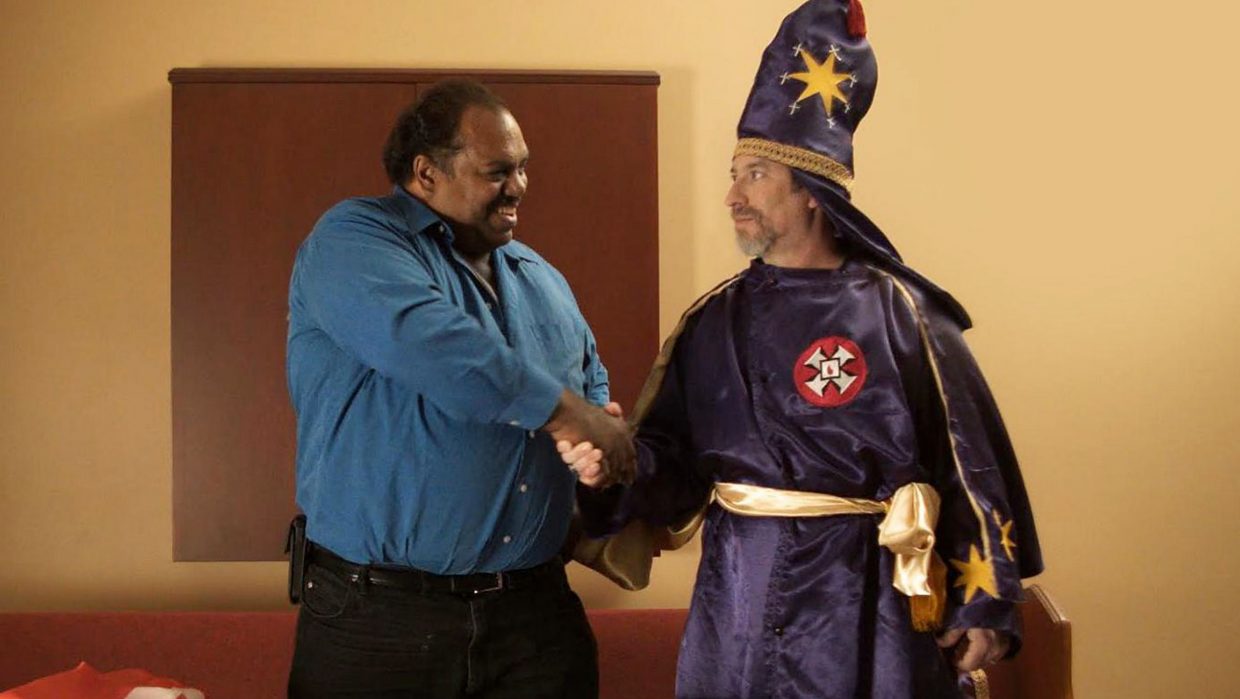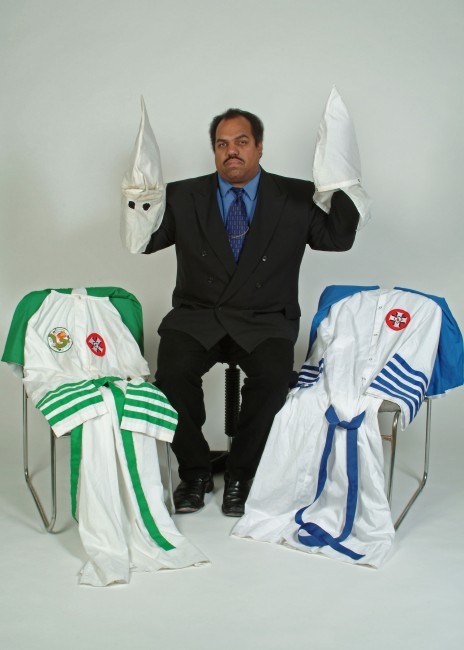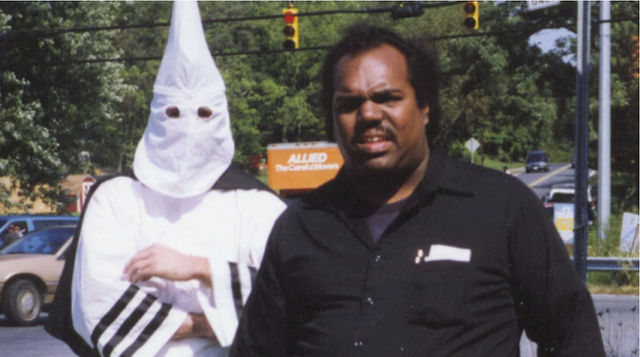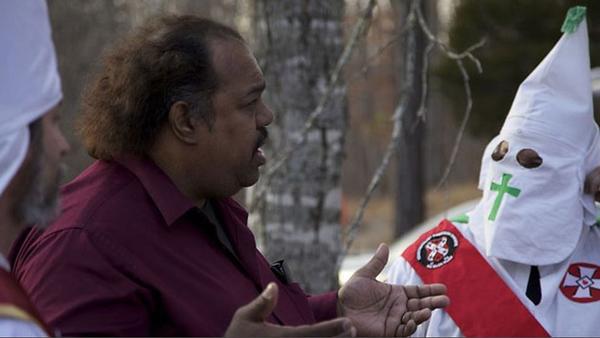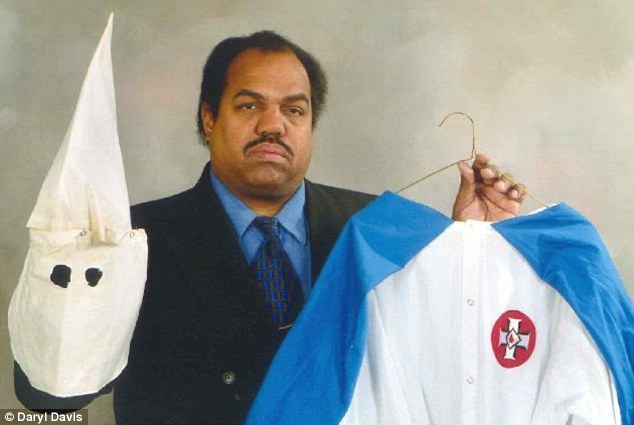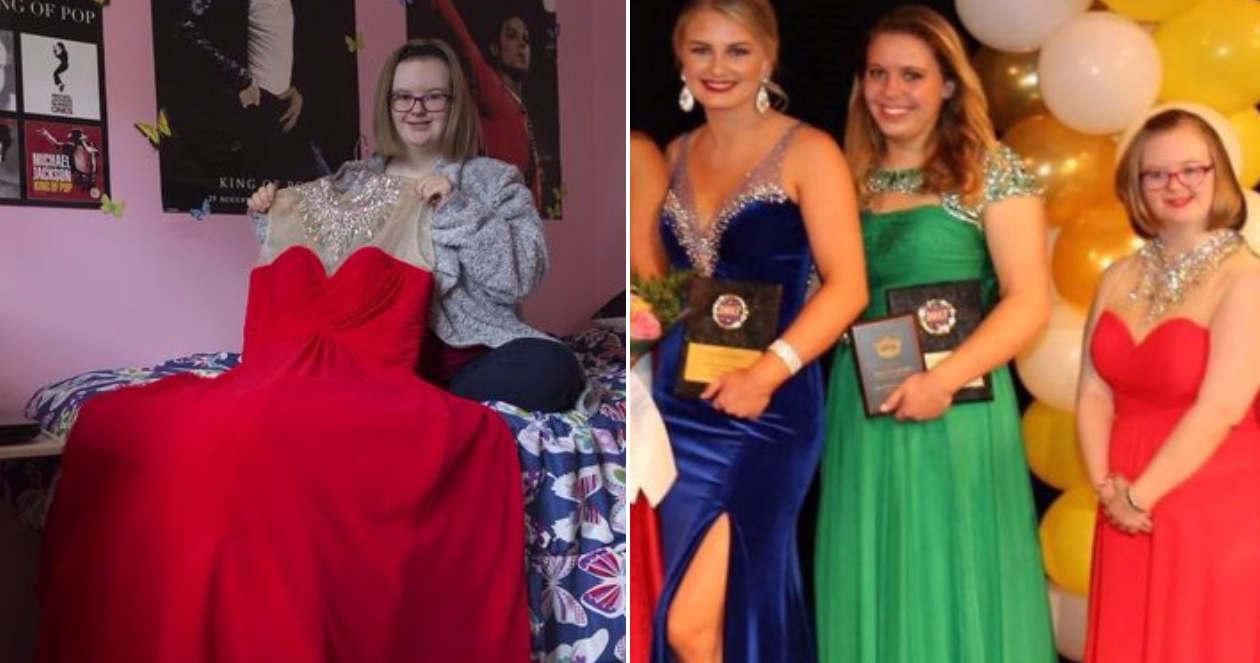There's way too much conflict in the world right now. Hatred and nastiness have taken center stage, and that's not what America is about.
Daryl Davis, a black Blues musician, decided he was going to travel across the country and find out the reasoning behind some of the most hateful people in the world: members of the Ku Klux Klan, or the KKK.
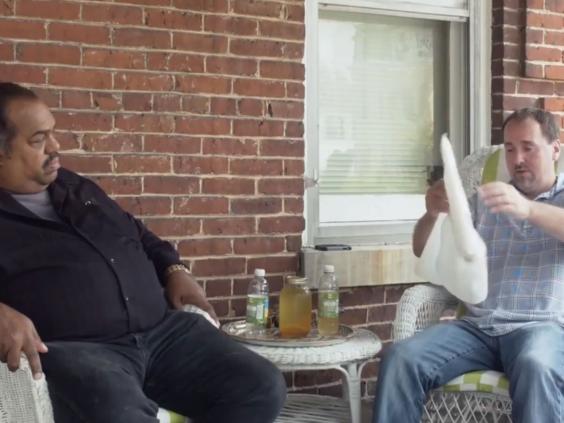
Davis was born in 1958 in Chicago, Illinois. He moved around the world during his childhood with his dad being a Foreign Service officer. Davis learned about different races and cultures, oblivious to racism in his own country. It wasn't until he was back in American that Davis was literally struck with how bad racism was. At age 10, he joined an all-white Cub Scout troop in Massachusetts. While marching in a local parade, David had rocks and bottles thrown at him from the crowd. This didn't make sense to him, as these people didn't know who he was.
As he grew older, Davis fell in love with music.
"Music absolutely played a massive role in bridging many gaps in the racial divides I would encounter," said Mr. Davis.
Davis decided it would be his mission to travel across the United States and confront members of the KKK, and honestly? It was incredible.
In 1998, Davis wrote a book Klan-destine Relationships: A Black Man's Odyssey in the Ku Klux Klan. It documented his encounters with KKK members, including a couple of physical fights, all of which Davis claims to have won.
"I was not seriously injured," he says. "I've faced knives and guns and of course fists. I've had to physically fight upon occasion, but that is not my first resort. I did not carry any weapons to my interviews. On one occasion, it was only one Klansman who attacked me. On another, it was 3 of them. I won, both physically on the street and legally in court."
"I never set out to convert anyone in the Klan. I just set out to get an answer to my question: "˜How can you hate me when you don't even know me,'" said Davis in his new documentary Accidental Courtesy. "I simply gave them a chance to get to know me and treat them the way I want to be treated."
"It's a wonderful thing when you see a light bulb pop on in their heads or they call you and tell you they are quitting," said the author, actor and lecturer. "They come to their own conclusion that this ideology is no longer for them. I am often the impetus for coming to that conclusion and I'm very happy that some positivity has come out of my meetings and friendships with them."
Davis says he never actively worked to convert people away from the KKK. But, over time, he has befriended over 200 members who chose to leave the racially divisive group.
"The lesson learned is: ignorance breeds fear," says Davis. "If you don't keep that fear in check, that fear will breed hatred. If you don't keep hatred in check, it will breed destruction."
Davis recalled an interaction with a Klan member in which he challenged him to a battle of intelligence.
Davis had set up a meeting with the Grand Dragon of the KKK in Maryland, Roger Kelly. Davis had his secretary, a white woman, set up the meeting knowing Kelly would never think a white woman worked for a black man.
At the meeting, tensions rose. But Davis befriended Kelly by the end of it, and the Grand Dragon left the Klan. He later went on to become Davis's daughter's godfather.
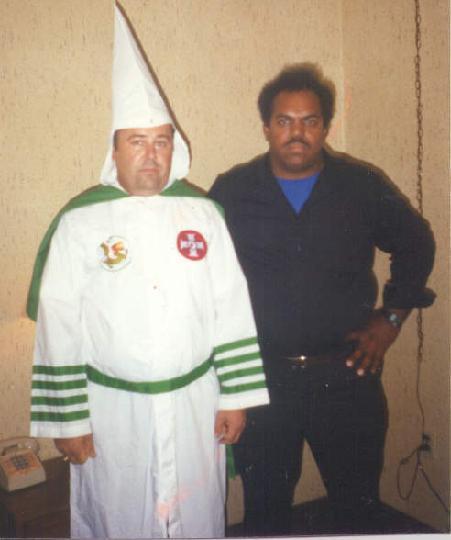
Davis used his intelligence and calm nature to try and make people see the flaws in their beliefs. At one meeting, Davis recalled a Klansman who was presumptious from the start.
"All black people have a gene in them that makes them violent," he told Davis.
"After a time I said, "˜You know, it's a fact that all white people have within them a gene that makes them serial killers," recalled Davis. "Name me three black serial killers.' He could not do it. I said "˜you have the gene. It's just latent.' He said, "˜Well that's stupid.' I said, "˜It's just as stupid as what you said to me.' He was very quiet after that and I know it was sinking in."
"In fact, I know more about the KKK than most Klan members know about their own organization," Davis says. "Knowledge, information, wit, and the way you disseminate these attributes can often prove to be a more disarming weapon against an enemy or some with whom your ideology is in conflict, than violence or lethal weapons. I was heavily armed with those attributes. I had been told by someone who knew him very well, that Roger Kelly would kill me. I felt confident without any physical weapon that I would prevail. Fortunately, I proved it true."
As for racism now and the political climate, Davis has an opinion on that, as well.
"They celebrate [Donald Trump's] election," Davis says. "But, let me be clear here. Every racist I know, and I know a lot of them, voted for Trump. However, that does not mean that everyone who voted for Trump is a racist. I know a lot of people who voted for him who are not racist."
Had you heard of Daryl Davis' story before?
